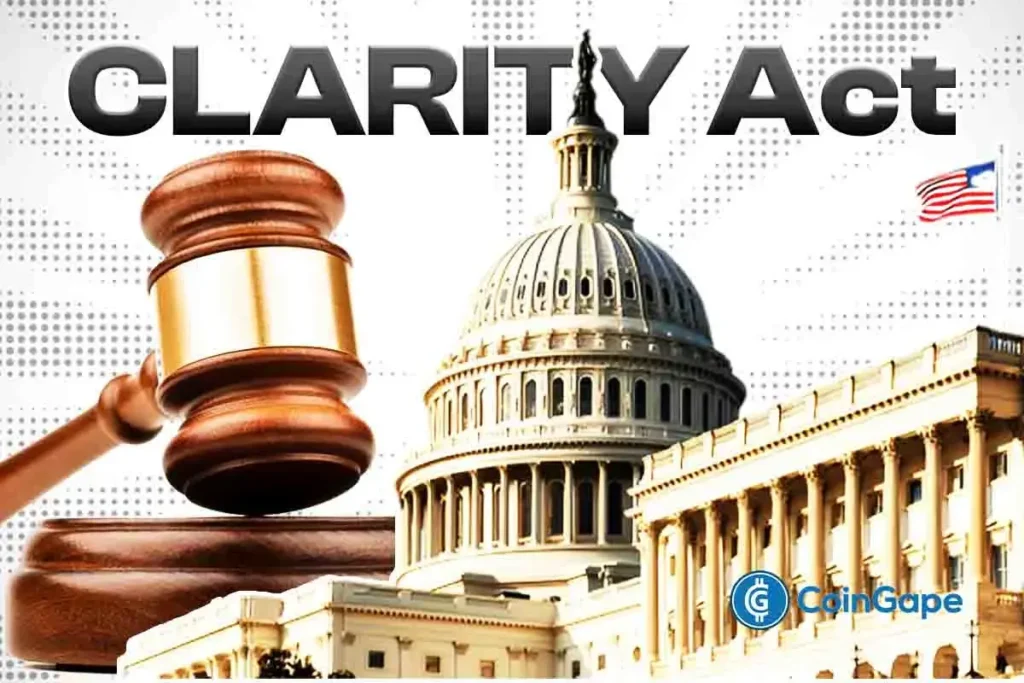The Clash Between Crypto Stakeholders and Traditional Banks: A Review of the CLARITY Act
As the landscape of digital assets continues to evolve, a renewed conflict between cryptocurrency stakeholders and traditional banks has emerged. This clash comes into focus as the U.S. Senate reviews the proposed CLARITY Act. Central to this debate is a controversial provision that banking industry advocates seek to introduce, which aims to prohibit rewards or yield on stablecoins offered through cryptocurrency platforms. This move has ignited a heated discussion surrounding consumer rights and the regulatory framework governing digital assets.
Understanding the Legislative Context
This recent conflict follows the enactment of the GENIUS Act in July, which addressed various aspects of digital asset regulation, including restrictions on stablecoins receiving bank deposit interest. However, banks are now pressuring lawmakers to extend these restrictions to exchanges, which supporters of the cryptocurrency industry argue would undermine the fundamental principles established by Congress in the GENIUS Act. This renewed push could signal a shift in the regulatory balance and raise questions about consumer rights in the burgeoning crypto ecosystem.
The Role of Major Bank Lobbying
Coinbase CEO Brian Armstrong has been vocal about the banking sector’s lobbying efforts to undermine the protections established in the GENIUS Act. In a recent post on X, Armstrong criticized these efforts, framing them as an attempt by banks to capitalize on consumer rewards from digital assets such as USDC. He emphasized that any attempt to revisit existing restrictions contradicts the legislative intent behind the earlier bill. Armstrong’s comments highlight a fundamental tension: banks seeking to protect traditional interests versus crypto advocates fighting for their right to earn yield on digital assets.
Implications for Consumers and the Market
Armstrong further elaborated that the introduction of yield prohibitions would effectively facilitate a bailout for banks that are already thriving in a profitable environment, ultimately at the expense of consumers. He revealed that tens of millions of Americans have engaged with cryptocurrency, viewing rewards and yields as integral to its value proposition. As the conversation shifts towards market structure legislation in the Senate, the implications of any changes to the CLARITY Act could have far-reaching effects on consumer engagement in the crypto space.
Organized Resistance from the Crypto Industry
In response to the banking sector’s lobbying efforts, the crypto industry is rallying against the proposed yield prohibition in the CLARITY Act. The Blockchain Association has launched a campaign to "defend the GENIUS Act," emphasizing that the provisions outlined within it should be regarded as settled law. The association’s CEO, Summer Mersinger, has addressed congressional leaders, urging them not to revisit discussions that were previously resolved. The growing organized response illustrates the determination of the crypto community to protect their rights amid changing regulatory landscapes.
The Banks’ Perspective: Concerns Over Financial Stability
Proponents of the yield prohibition, such as the Bank Policy Institute, argue that offering yields on stablecoins could create an imbalance by directing funds away from the traditional banking system. They fear that such rewards may operate similarly to interest earned on bank deposits, which could jeopardize financial stability. This viewpoint underscores the ongoing tension between innovation in the finance sector and the desire to maintain a stable operating environment for traditional financial institutions.
Looking Ahead: The Future of Crypto Regulation
As the debate around the CLARITY Act unfolds, the future of cryptocurrency regulation hangs in the balance. With a markup scheduled for next month—pending prevailing political conditions like a looming government shutdown—the U.S. legislative process will have to carefully consider the interests of both traditional banks and cryptocurrency stakeholders. The outcome of this ongoing conflict will undoubtedly shape the future of digital assets in the U.S., influencing everything from consumer rights to the competitive landscape of banking and finance. Stakeholders, regulators, and consumers alike are watching closely, as the decisions made today will set the tone for tomorrow’s digital financial landscape.


